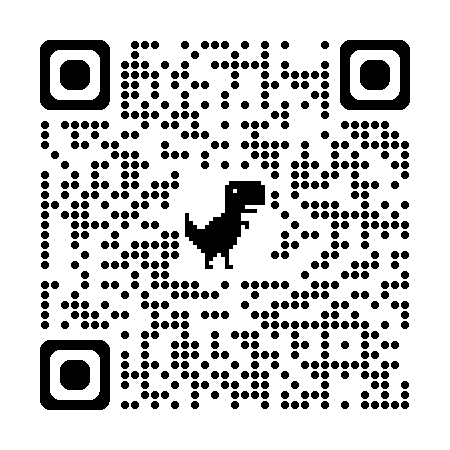The Violation of the Law of Defamation in Political Campaigns on Social Media During Nigeria's 2023 General Elections
Keywords:
campaigns; elections, general election, law of defamation, social media, violationAbstract
Background: Although Nigeria’s 2023 general campaigns featured prominently on social media, limited studies have examined the violation of the law of defamation in the process.
Objective: This study examines the violation of the law of defamation in social media campaigns during the 2023 general election in Nigeria.
Method: The study used a descriptive survey, and the sample consisted of 321 active social media users with a background in law. Data were collected using a structured questionnaire, while analyses were done using percentages, mean, and standard deviation, as well as an independent t-test. The results were presented in charts and tables.
Result: The majority (52%) of the participants indicated that the law of defamation was violated on social media to a large extent during the 2023 general election campaigns in Nigeria. The participants indicated that there were more violations in the presidential election than in the governorship election. Also, there were more violations in the National Assembly election than in the State Assembly. Overall, there were more violations in the presidential election than in all the other categories of elections examined.
Contribution: This study has provided empirical evidence for understanding how social media use in politics has led to the violation of the law of defamation during electioneering campaigns.
Conclusion: The law of defamation was violated on social media during the 2023 electioneering campaigns.
References
Alam, S., & Islam, M. Z. (2016). Offensive statements on social networking platforms with the special reference to cyber defamation: a comparative analysis between Malaysia and Bangladesh. Journal of Asian and African Social Science and Humanities, 1(3), 40–57. Retrieved from https://aarcentre.com/ojs3/index.php/jaash/article/view/35
Berti, C., & Loner, E. (2023). Character assassination as a right-wing populist communication tactic on social media: The case of Matteo Salvini in Italy. New Media & Society, 25(11), 2939-2960. https://doi.org/10.1177/14614448211039222
Criminal Code Act (1990). Federal Republic of Nigeria. Abuja.
Drew, R. (2016). Technological determinism. A companion to popular culture, 165–183. doi:10.1002/9781118883341.ch10
Effing, R., van Hillegersberg, J. & Huibers, T. (2011). Social media and political participation: are Facebook, Twitter and YouTube democratizing our political systems? In: Tambouris, E., Macintosh, A., de Bruijn, H. (eds) Electronic Participation. ePart 2011. Lecture Notes in Computer Science, vol 6847. Springer, Berlin, Heidelberg. https://doi.org/10.1007/978-3-642-23333-3_3
Guess, A., Munger, K., Nagler, J., & Tucker, J. (2018). How accurate are survey responses on social media and politics? Political Communication, 1–18. doi:10.1080/10584609.2018.1504840
Hallström, J. (2022). Embodying the past, designing the future: technological determinism reconsidered in technology education. International Journal of Technology and Design Education, 32-17-31 doi:10.1007/s10798-020-09600-2
Harris, L., & Harrigan, P. (2015). Social media in politics: the ultimate voter engagement tool or simply an echo chamber? Journal of Political Marketing, 14(3), 251–283. doi:10.1080/15377857.2012.693059
Kahne, J., & Bowyer, B. (2018). The political significance of social media activity and social networks. Political Communication, 35(3), 470–493. doi:10.1080/10584609.2018.1426662
Kruse, L. M., Norris, D. R., & Flinchum, J. R. (2017). Social media as a public sphere? Politics on social media. The Sociological Quarterly, 59(1), 62–84. doi:10.1080/00380253.2017.1383143
Lisa, H. & Harrigan, P. (2015) Social media in politics: The ultimate voter engagement tool or simply an echo chamber?, Journal of Political Marketing, 14:3, 251-283, DOI: 10.1080/15377857.2012.693059
Marouf, A., Ajwad, R. & Ashrafi,F. (2019). "Looking Behind the Mask: A framework for Detecting Character Assassination via Troll Comments on Social media using Psycholinguistic Tools," 2019 International Conference on Electrical, Computer and Communication Engineering (ECCE), Cox'sBazar, Bangladesh, pp. 1-5, doi: 10.1109/ECACE.2019.8679154.
Mills, A. (2015). The law applicable to cross-border defamation on social media: whose law governs free speech in “Facebookistan”? Journal of Media Law, 7(1), 1–35. doi:10.1080/17577632.2015.1055942
Penal Code Act (2008). Federal Republic of Nigeria. Abuja.
Petrova, M., Sen, A., & Yildirim, P. (2020). Social media and political contributions: the impact of new technology on political competition. Management Science. doi:10.1287/mnsc.2020.3740
Söderberg, J. (2013). Determining social change: The role of technological determinism in the collective action framing of hackers. New Media & Society, 15(8), 1277-1293. https://doi.org/10.1177/1461444812470093
Spierings, N. & Jacobs, K. (2014). Getting personal? The impact of social media on preferential voting. Political Behaviour, 36, 215–234 https://doi.org/10.1007/s11109-013-9228-2.
Downloads
Published
How to Cite
Issue
Section
License
Copyright (c) 2024 Okoli Basil Chuka, Monday Aliu, Marian Ofunu Ujah , Ken Amaechi Egbo, Egbara Owa Owa, Peter Labe Atime

This work is licensed under a Creative Commons Attribution-NonCommercial-ShareAlike 4.0 International License.



